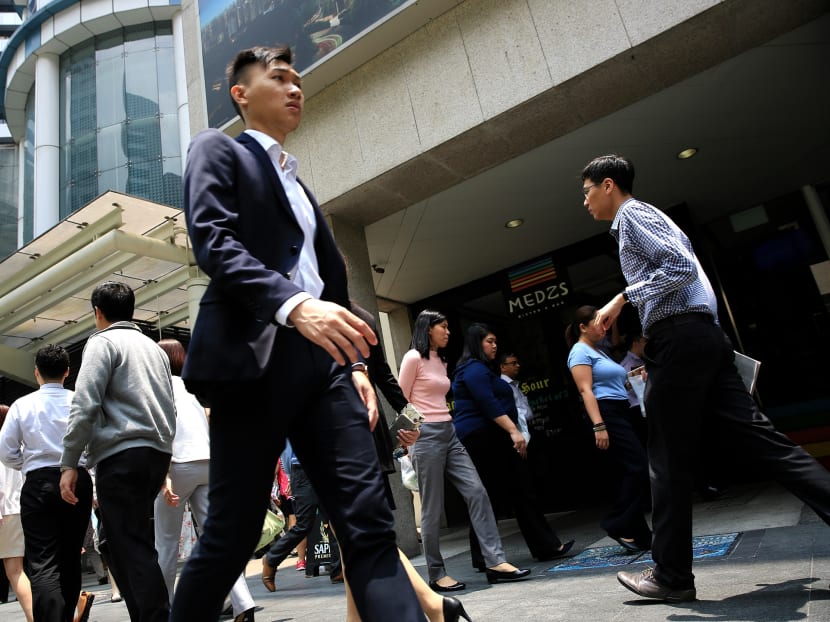Dress right for Singapore’s tropical weather to help reduce greenhouse gases emitted by air-conditioners
Singapore has committed to meet the goals set during the Paris Climate Agreement, but in the wake of the special report published this month by the Intergovernmental Panel on Climate Change — on the effects of a global warming of 1.5°C — pressure has been put on wealthy countries such as Singapore to do more to tackle the issue.

The average daily temperature in Singapore is around 27°C with a very low degree of variation, and yet, during the workweek, the vast majority of men are wearing long-sleeve shirts, and some are even wearing a suit jacket.
Singapore has committed to meet the goals set during the Paris Climate Agreement, but in the wake of the special report published this month by the Intergovernmental Panel on Climate Change — on the effects of a global warming of 1.5°C — pressure has been put on wealthy countries such as Singapore to do more to tackle the issue.
In a recent TODAY article, experts here weighed in on some of the measures Singapore could take. Their suggestions mostly revolved around implementing and sharing new technologies and moving away from natural gas, which now accounts for 95 per cent of Singapore’s energy production.
What I think was missing from this conversation, and many conversations surrounding climate change mitigation, is a discussion of the energy consumption behaviours of individuals.
In February, TODAY published a commentary covering the problem of excessive air-conditioning use in Singapore, and the major sources of such heavy use.
A problem that has yet to be addressed is the culture of wearing formal business attire.
The average daily temperature in Singapore is around 27°C with a very low degree of variation, and yet, during the workweek, the vast majority of men are wearing long-sleeve shirts, and some are even wearing a suit jacket.
Such formal office wear comes at a high price. When workers are outside the office, they are ill-dressed for the hot and humid weather, and when they are inside the office, they jack up the air-conditioning and significantly raise energy consumption.
Reducing the premium on formal office attire would significantly reduce office air-conditioning use.
Japan, a country with a similar formal work environment to Singapore, has been acutely aware of the energy savings that can come about by having a dressed-down workplace.
Since 2005, the Japanese government has promoted “Cool Biz”, a campaign that encourages workers to ditch formal business attire such as suits and ties for shorts and polo shirts, and to set their thermostats to 28°C.
By 2009, survey data showed that around 57 per cent of workplaces in Japan had implemented recommendations from “Cool Biz”, leading to a significant reduction in energy consumption and greenhouse gas emissions.
After the Fukushima nuclear disaster in March 2011, Japan has not been able to rely on nuclear power, which led the government to ramp up the “Cool Biz” campaign to “Super Cool Biz”.
In the summer of 2011, the city of Tokyo was able to reduce household consumption of electricity by an extra 11.8 per cent just through the behaviours promoted in the “Super Cool Biz” campaign. In total, “Cool Biz” and “Super Cool Biz” have reduced energy consumption by millions of kWh and reduce carbon emissions by millions of tonnes.
Singapore is more than capable of implementing a similar social campaign. It would not only create more comfortable and energy-efficient workplaces, but it would set an example for the rest of South-east Asia by showing a simple, inexpensive way that governments can mitigate climate change.






